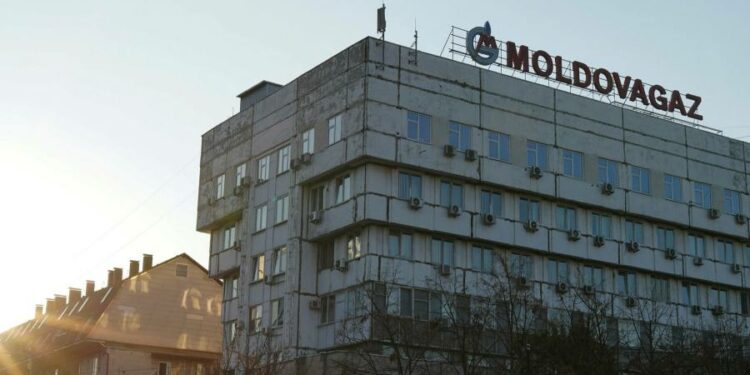Moldova has signed a new long-term gas supply contract with Gazprom, a decision set to end a gas crisis in the country caused by the Russian company’s move to cut back shipments and demand political concessions in exchange for a deal.
The former Soviet state has been in negotiations with Gazprom for the past month, while also seeking financial assistance from the EU and trying to buy enough gas from European companies on the spot market to meet its daily needs as it feared a crippling shortage this winter.
Moldova this month declared a state of emergency after Kremlin-controlled Gazprom, which provides all of the country’s gas, cut deliveries by a third and threatened that supplies could be shut off if Moldova did not agree to a more expensive contract.
Gazprom also said during negotiations with Moldova that the country could get a better deal on gas if it gave up some pro-EU policies, people briefed on the negotiations told the FT this week.
The Moldovan crisis has been part of a wider European gas crunch that has led critics of Gazprom, Europe’s largest gas supplier, to suggest it is trying to extract political concessions and punish countries and governments that it disagrees with.
Moldova is not part of the EU but elected a strongly pro-western party to power this summer, which is seeking closer ties with Brussels and wants to take the country out of its historic Russian orbit. Russia has denied that politics has played a role in the negotiations, and said it was discussing a new contract “exclusively on commercial terms”.
The EU’s foreign policy chief described Gazprom’s approach to its negotiations with Moldova on Thursday as “weaponisation of the gas supply.”
But despite efforts by EU officials to convince the country that it should avoid signing up to a new, binding deal with Moscow and instead rely on shipments from European companies, Moldova announced on Friday a five-year contract with the state-owned company.
“The agreement . . . includes the extension of the previous contract between Gazprom and MoldovaGaz for another five years based on the price formula proposed by the Moldovan side,” Moldova’s government said in a statement, adding that deliveries would begin on Monday.
The deal also involves an audit of debts that Gazprom says Moldova owes to the Russian company, but that Chisinau has contested. No price details were disclosed.
Moldova’s prime minister, Natalia Gavrilita, had told the FT this week that unless her country reached a deal with Gazprom it would need to spend about €800m over the next five months on alternative imports to meet its winter demand. That would require more support from Brussels, she said.
The EU this week promised Moldova a €60m grant, equivalent to 20 days of gas imports at current market prices.
“We have been grateful for the EU’s support,” Gavrilita told the FT on Thursday, before the new contract was agreed. “There are no easy solutions here.”
“We have been open to remain a partner to Gazprom, to conclude a long-term contract . . . We do need to think about affordability,” she added.











